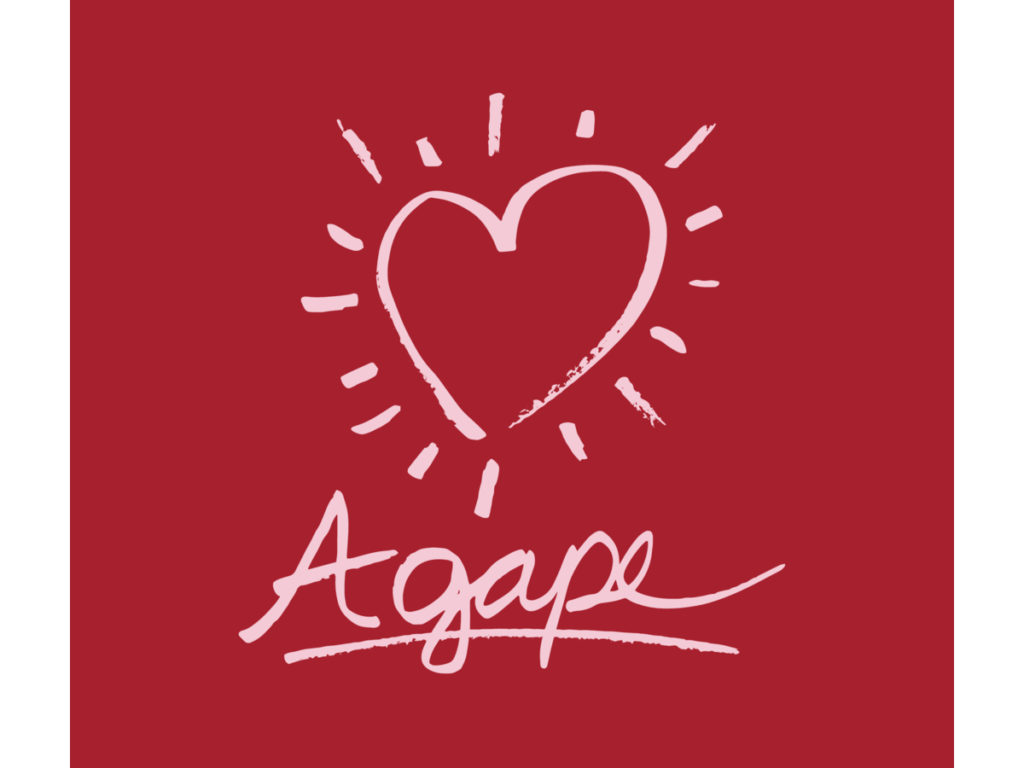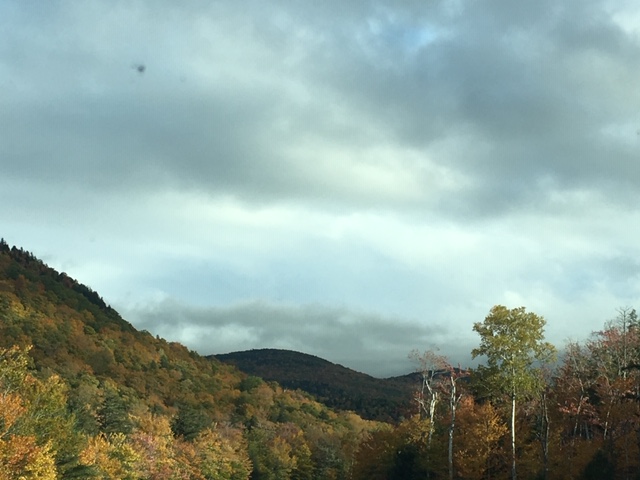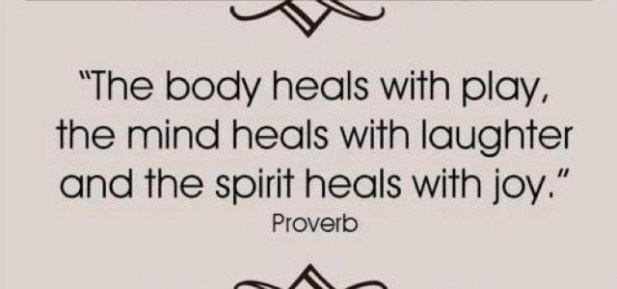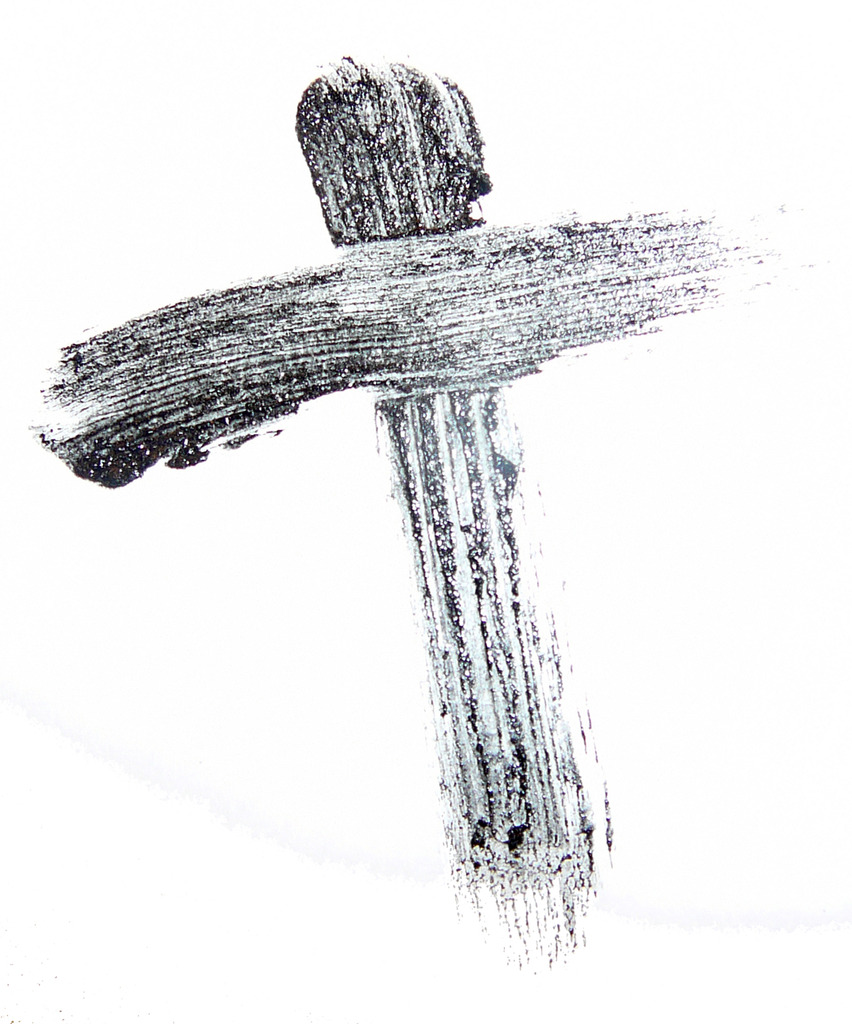Fri, Mar 4: OPEN SENSES
I lift up my eyes to the hills— from where will my help come?
My help comes from the Lord, who made heaven and earth.
— Psalm 121: 1-2
When I look at your heavens, the work of your fingers,
the moon and the stars that you have established;
what are human beings that you are mindful of them,
mortals that you care for them? — Psalm 8:6
For God alone my soul waits in silence;
from God comes my salvation.
God alone is my rock and my salvation,
my fortress; I shall never be shaken.
— Psalm 62:1-2
Lead me to the rock that is higher than I;
for you are my refuge.
— Psalm 61:2
To receive the gifts of the world around us, and the revelation of Holy Love as part of creation, we are invited to open and attune our senses. Additionally, becoming attentive with our senses may also improve our perceptions with regard to relationships with other people, and even self-care.
For instance, in Mt Washington Valley, we’re surrounded by mountains. Our lives are bounded by peaks and valleys, notches and cliffs. When we look toward the horizon, we read it through the heights and depths of the landscape. Light breaks over it, sinks behind it.
For some folks, witnessing that grandeur and changing beauty is enough. The journey is taken with the eyes, and how it tugs the heart and mind along on its journey.
To gain a different perspective, we can travel up those slopes. Or walk down them. The steps along the way also mater, since it’s the journey that shapes us. Yet the destination delivers its own gifts.
Summits promise a chance for respite. They serve as a reminder and opportunity to set ourselves apart with time and distance. To create space to collect and center ourselves. To focus. Or to let go .
Seeking out such places also gives us a sense of proportion. We are in the presence of elements larger than ourselves. More eternal. The mountains may not be altered when we take journeys over and among them, yet they change us.
Remember that self-care and spiritual wellbeing include break time. Like Christ choosing to leave behind the crowds and take time to pray on the mountain, we can follow this model. Removing ourselves from daily needs and demands. Putting aside schedules and deadlines. Permitting ourselves the chance to grow quiet, whether it’s during the walk up and down the mountain, or lingering at the top, or even observing from some distant spot and gazing out at the vista that the mountain offers.
Pastor and hiker Noah Van Niel suggests the following practice. Choose a Psalm. A few scriptures are offered above, but nature appears in many of them. Read through a few options before resting to look at the mountains or traveling outside into the mountains. Select one psalm excerpt and carry it with you. Also keep this list in mind: trees and plants, the heavens, sky, path, wings, rocks, mountains and valleys, water, storms, animals. Contemplate how the sacred verses connect you to creation. When in the journey do the words come alive for you? When does the Psalm speak most clearly to you? When you are reminded of one of the words, pause and reflect: linger in that moment, that experience. How does the verse change the way you feel?
We are invited to find a time and place to be in the presence of ourselves. We are especially guided to also keep company with the unlimited and eternal: Godself.— Rev Gail
————————————————————————————
Climb the mountains and get their good tidings. Nature’s peace will flow into you as sunshine flows into trees. The winds will blow their own freshness into you, and the storms their energy, while cares will drop away from you like the leaves of Autumn. ― John Muir
Prayer is a mountain; you have to climb it. — Prophetess Triza
PRAYER from MOUNTAIN as SANCTUARY & INSPIRATION
– excerpt from statement by Martin Luther King, Jr.
I just want to do God’s will … to go up to the mountain.
And I’ve looked over and I’ve seen the Promised Land.
PRAYER If MOUNTAIN Is ADVERSARY
— excerpt from prayer by Terra Blakemore
Lord God, give us this mountain and the knowledge, wisdom, understanding, patience, and strength to climb it, overcome it … We thank You for every mountain, circumstance, fear, and adversary You help us climb … and overcome in the power of Your Holy Spirit, Your awesome might. We thank You for every word of comfort, encouragement, correction, and instruction. We thank You for grace, mercy, forgiveness …
Thurs, Mar 3: OPEN MIND
Do not be conformed to this world, but be transformed
by the renewing of your minds, so that you may discern
what is the will of God—what is good and acceptable and perfect.
— Romans 12:2
This Lenten season is an invitation to open our minds to God’s light and presence. To be changed in our minds. On Thursdays, we focus on opening our minds.
Let’s begin with language. Author Chris Blachut suggests to change your conversational style from either/or to both/and. Eliminate binaries. Become aware of phrases such as “but” or “however” which are conditional and negate everything that precedes them. Eliminate “but” and “however.” Instead, use “Yes, and…” or “Interesting, and…” This acknowledges whatever has been shared with you, and allows you to further explore the concept or idea.
Ask yourself better questions. Blachut also noted, “Asking and answering the right questions is like getting signal on your phone’s GPS when you’re lost. It changes your mind and your direction.” The Ignatian movement’s discernment and decision-making practice involves asking questions and praying deeply. Learn more at https://www.ignatianspirituality.com/making-good-decisions. Simon Sinek’s work on “finding our why” is another excellent exercise in exploring deep questions about what motivates us and gives us a sense of purpose and worth. He also advises that you ask people who know you well (not family, though) to reflect about your passions, values, gifts, talents, and strengths.
What might God reveal to us, if we allow new perceptions to visit us? — Rev Gail
————————————————————————————
Those who cannot change their minds cannot change anything.
― George Bernard Shaw
… there are moments when one has to choose between living one’s own life, fully, entirely, completely—or dragging out some false, shallow, degrading existence that the world in its hypocrisy demands. You have that moment now. Choose! ― Oscar Wilde
Wed, Mar 2 (Ash Wednesday): OPEN HEART
Yet even now, says the Lord, return to me with all your hearts,
with fasting, with weeping, and with sorrow; tear your hearts and not your clothing.
Return to the Lord your God, Who is merciful and compassionate,
very patient, full of faithful love, and ready to forgive.
— Joel 2: 12-13
Today we take up the burnt palm leaves from last year’s Palm Sunday celebration. The green leaves have dried and yellowed. They are only the memory of some portion of our lives that we’ve clung to — preserved for a year — now released by flames.
Once verdant green, those palm leaves have changed to black and gray. They are transformed to charcoal, soot and ash. Today we gather up whatever is left, whatever didn’t go up in smoke. Combine ashes with the oil of anointing, and wear them.
Today we bow our heads or fall to our knees, so we can rise again. We Rise: revealed. Rise: beloved.
Today is a confession. It’s a submission. It’s a surrender. It’s a turning and re-turning.
Oh, to be sure, we don’t become suddenly perfect as we confess. We’re as imperfect as ever. We’re as messy and broken as before, and also as beautiful and possible, as before. Yet we are also accepted and forgiven.
Afterward, sooty leftovers grace our skin as thumbprints, crosses, or circles. We wear Christ’s fingerprints. Mark ourselves. Allow ourselves to be marked.
In this moment, we drop our guard. Look into the face of God, or ask God to look upon our faces. Doing so, we invite the experience of being fully seen, fully known.
It makes a difference, when we choose to participate, and to offer ourselves to the Love that sees us. Especially when we then turn toward the world, bearing the mark of being seen and known: beloved just as we are. — Rev Gail
————————————————————————————
Blessing the Dust: For Ash Wednesday
—Jan Richardson
All those days / you felt like dust, / like dirt, as if all you had to do
was turn your face / toward the wind
and be scattered / to the four corners
or swept away / by the smallest breath
as insubstantial— did you not know
what the Holy One / can do with dust?
This is the day / we freely say / we are scorched.
This is the hour / we are marked
by what has made it / through the burning.
This is the moment / we ask for the blessing / that lives within
the ancient ashes, that makes its home
inside the soil of / this sacred earth.
So let us be marked / not for sorrow.
And let us be marked / not for shame.
Let us be marked / not for false humility
or for thinking / we are less / than we are
but for claiming / what God can do
within the dust, within the dirt,
within the stuff / of which the world
is made / and the stars that blaze
in our bones / and the galaxies that spiral
inside the smudge / we bear.
—Jan Richardson
Tue, Mar 1 (Fat Tuesday Mardi Gras): OPEN EYES
No temptation has overtaken you that is not common to man.
God is faithful, and he will not let you be tempted beyond your ability,
but with the temptation he will also provide the way of escape,
that you may be able to endure it. — 1 Corinthians 10:13
Sometimes we celebrate this day as the final day of Carnival, the festive time between Epiphany and Lent. It is joyous culmination of a season of feasting and partying, marked by vivid music, masks, costumes, and dancing.
Traditionally, on this day prior to Lent, households would cook to use up extra oils and fats, prior to Christian practices of fasting through Lent. Pancakes werev opften made and served. It’s meaning translates to ‘Fat Tuesday.’
In a liturgical context, this day is called Shrove Tuesday: dedicated to seeking absolution orior to entering Lent’s preparatory journey. On this day, churches burn the palms used in last year’s Passion Week in order to create the ashes which will be shared in Wednesday’s religious observances.
Symbolically, we burn away the vestiges of last year’s pomp and circumstance. Metaphorically we shed any outer layers, veils, uniforms, and armor that guard and hide us.
As we approach Lent, this becomes an invitation to consider the masks we wear. What is our public identity? What face do we present to others? Usually our best selves.
As of tomorrow, Ash Wednesday, the season comes when we’re invited to unmask. Offer ourselves, bare-faced, open-hearted, to God’s presence. Accepting and loving our whole selves, the messy and imperfect parts of ourselves, as well as the wonderful, strong aspects of ourselves.
As we burn the leaves, we let go of something. We also reveal something.
Today, when we put down the fork from the feast, when we slip off the mask after the music fades, may we offer ourselves to holy Love. After all, what’s the benefit of hiding from Godself? We’ve been seen and known all along. The only ones from whom we really hide are ourselves, and maybe other people. God knows us, whether we choose to be known or not.
God’s response is to pursue us, even when we withhold or withdraw. God’s promise is to love us: shadow and light, broken and beautiful, part and whole. — Rev Gail
————————————————————————————
Wholehearted living is about engaging in our lives
from a place of worthiness. It means cultivating the courage, compassion, and connection to wake up in the morning and think, ‘No matter what gets done and how much is left undone, I am enough’. — Brene Brown
PRAYER for MARDI GRAS
— excerpted from prayer by Andy Anderson, SJ, Loyola Press
Blessed are you, Lord God of all creation, for it is from your goodness that we have this day to celebrate on the threshold of the Season of Lent.
Today we feast. We thank you especially for one another. As we give you thanks, we are mindful of those who have so much less than we do. As we share these wonderful gifts together, we commit ourselves to greater generosity toward those who need our support.
Prepare us for tomorrow. Tasting the fullness of what we have today, let us experience some hunger tomorrow …As our feasting fills us with gratitude … hollow out in us a place for deeper desires and an attentiveness …
We ask you these graces with our hearts full of delight and stirring with readiness for the journey ahead. We ask them with confidence in the name of Jesus the Lord.
A Valentine’s Note from JCC: Songs and poems about different kinds of love: for people, for the world, for each other (hopeful, sad, reflective, rowdy)
SONGS about LOVE:
- One Love by Bob Marley (reggae):https://youtu.be/g94A1R8xHcQ
- Your Love Keeps Lifting Me Higher by Jackie Wilson (rock):https://youtu.be/mzDVaKRApcg
- What a Wonderful World by Louis Armstrong (rock/blues): https://youtu.be/2nGKqH26xlg
- What the World Needs Now by Jackie DeShannon (ballad): https://youtu.be/YUaxVQPohlU
- Gentle On My Mind by Glen Campbell (country): https://youtu.be/ETkzK9pXMio
- You Raise Me Up performed by 12 Tenors (ballad): https://youtu.be/wWeVqw7CsIE
- You Can’t Hurry Love by the Supremes (rock): https://youtu.be/uZj032MNIx4
- I’ll Stand By You Always by Bruce Springsteen (rock): https://youtu.be/hwfPtkxF0aA
- Ain’t No Mountain High Enough by Marvin Gaye & Tammi Terrell (rock): https://youtu.be/-C_3eYj-pOM
- In My Life by The Beatles (rock ballad): https://youtu.be/YBcdt6DsLQA
- I Love Her by The Beatles (rock): https://youtu.be/5tc0gLSSU1M
- Like a Bridge Over Troubled Water by Simon & Garnkel: https://youtu.be/4G-YQA_bsOU
- Look At Us by Vince Gill (country): https://youtu.be/uSfjp1ky4Mw
- What Love Really Means by JJ Heller (Christian): https://youtu.be/PgGUKWiw7Wk

Blessing for the Brokenhearted — Jan Richardson
There is no remedy for love but to love more. – Henry David Thoreau
Let us agree
for now
that we will not say
the breaking
makes us stronger
or that it is better
to have this pain
than to have done
without this love.
Let us promise
we will not
tell ourselves
time will heal
the wound,
when every day
our waking
opens it anew.
Perhaps for now
it can be enough
to simply marvel
at the mystery
of how a heart
so broken
can go on beating,
as if it were made
for precisely this—
as if it knows
the only cure for love
is more of it,
as if it sees
the heart’s sole remedy
for breaking
is to love still,
as if it trusts
that its own
persistent pulse
is the rhythm
of a blessing
we cannot
begin to fathom
but will save us
nonetheless.From The Cure for Sorrow: A Book of Blessings for Times of Grief
© Jan Richardson (Wanton Gospeller Press, 2016). janrichardson.com
Beatitudes for Those Who Love —
This prayer-poem is by Rev. Maren Tirabassi.

For Valentine’s Eve, Luke’s Beatitudes
Blessed are you who are poor
with no pink greeting cards or chocolate,
because you love someone with dementia –
for God remembers enough for both of you.
Blessed are you who are hungry for a love
forbidden by family or culture,
by law or religion,
by damage sustained in heart or spirit,
or by anyone who tears your family apart at a border–
because God promises you the taste of kisses.
Blessed are you who are shunned or bullied
in person and online for your body or your abilities,
for you will have a day
when you will see yourself in a mirror
and laugh with joy at how God made you beautiful.
Blessed are you when someone
assumes the fact that you didn’t marry
means you don’t know about love,
or when they call a child you cherish –
“just a foster kid,”
or bar the way of the therapy dog
who holds your heart together,
because your wounds do not fit
their definitions,
or turn you away in tears
from an ex-spouse’s visiting hours.
Re-joy in that day, for you understand
far more than most ever will.
But woe to you who hoard a loving family,
rather than sharing it with the lonely,
for you are consoled now.
Woe to you who expect life
to be all honeymoon,
for you won’t be resilient to disappointment.
Woe to you who laugh at anyone
who is unloved,
or whose love is dismissed –
for you will never be able to take it back
when the tears in your life teach you wisdom.
Woe to you when all congratulate
your penmanship or tech savvy in life,
but you forget the teacher
who once told you to make
a Valentine, not just for those like you,
but for everyone in class,
no, not the teacher in second grade –
the one two thousand years ago.
+++
Rev. Maren C. Tirabassi

POEM — Maya Angelou
We, unaccustomed to courage
exiles from delight
live coiled in shells of loneliness
until love leaves its high holy temple
and comes into our sight
to liberate us into life.
Love arrives
and in its train come ecstasies
old memories of pleasure
ancient histories of pain.
Yet if we are bold,
love strikes away the chains of fear
from our souls.
We are weaned from our timidity
In the flush of love’s light
we dare be brave
And suddenly we see
that love costs all we are
and will ever be.
Yet it is only love
which sets us free.

The Dance— Wendell Berry
I would have each couple turn,
join and unjoin, be lost
in the greater turning
of other couples, woven
in the circle of a dance,
the song of long time flowing
over them, so they may return,
turn again in to themselves
out of desire greater than their own,
belonging to all, to each,
to the dance, and to the song
that moves them through the night.
What is fidelity? To what
does it hold? The point
of departure, or the turning road
that is departure and absence
and the way home? What we are
and what we were once
are far estranged. For those
who would not change, time
is infidelity. But we are married
until death, and are betrothed
to change. By silence, so,
I learn my song. I earn
my sunny fields by absence, once
and to come. And I love you
as I love the dance that brings you
out of the multitude
in which you come and go.
Love changes, and in change is true.




